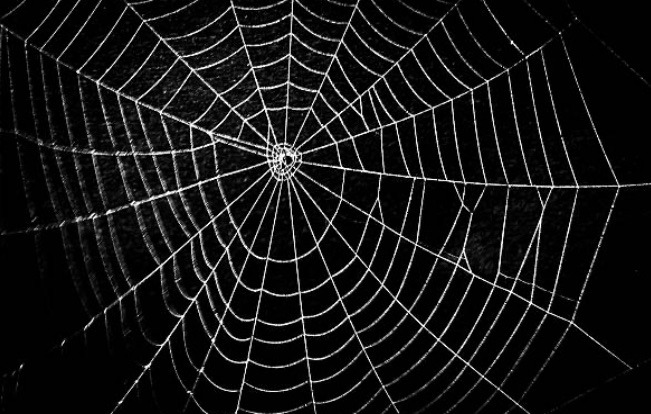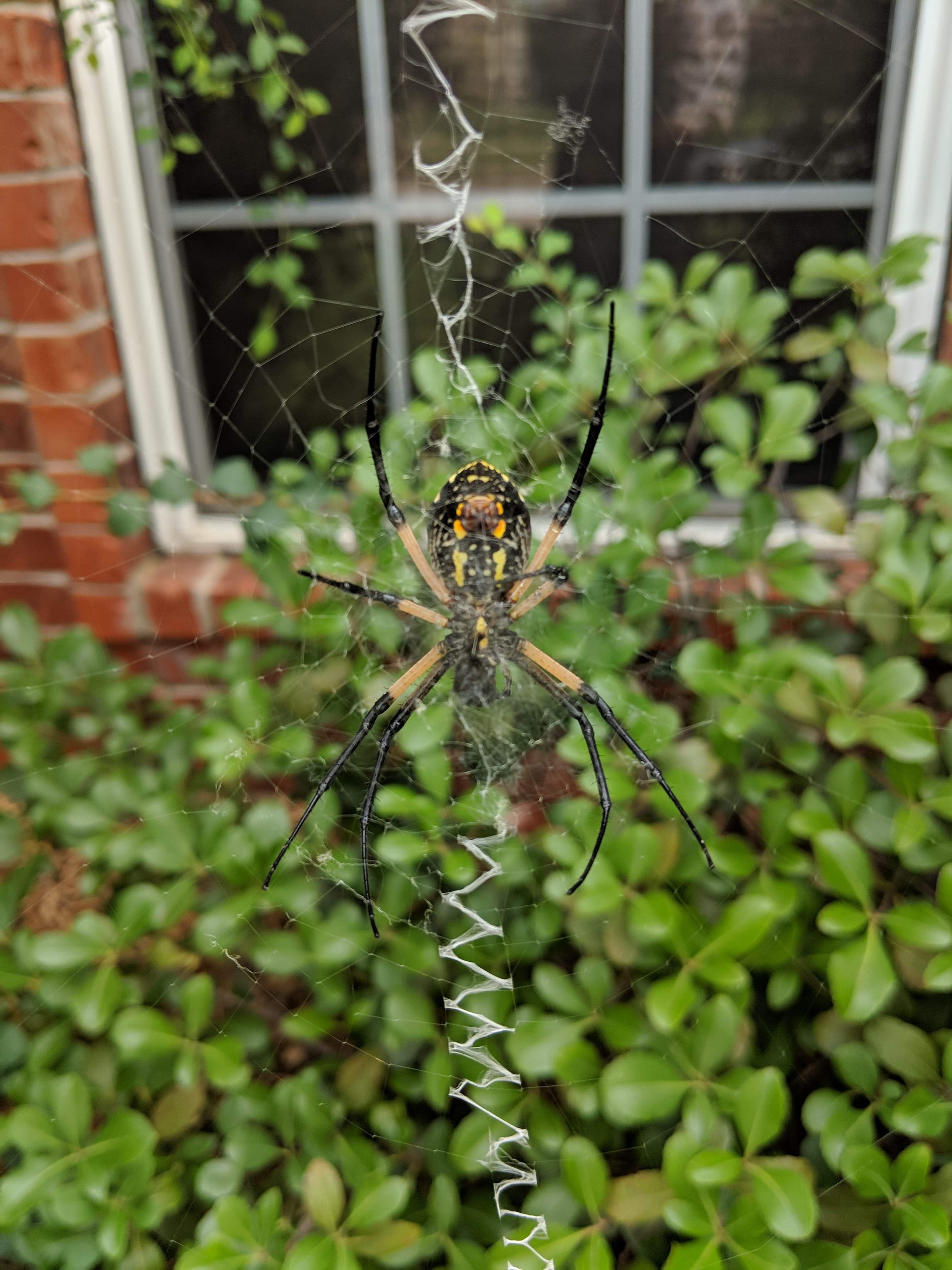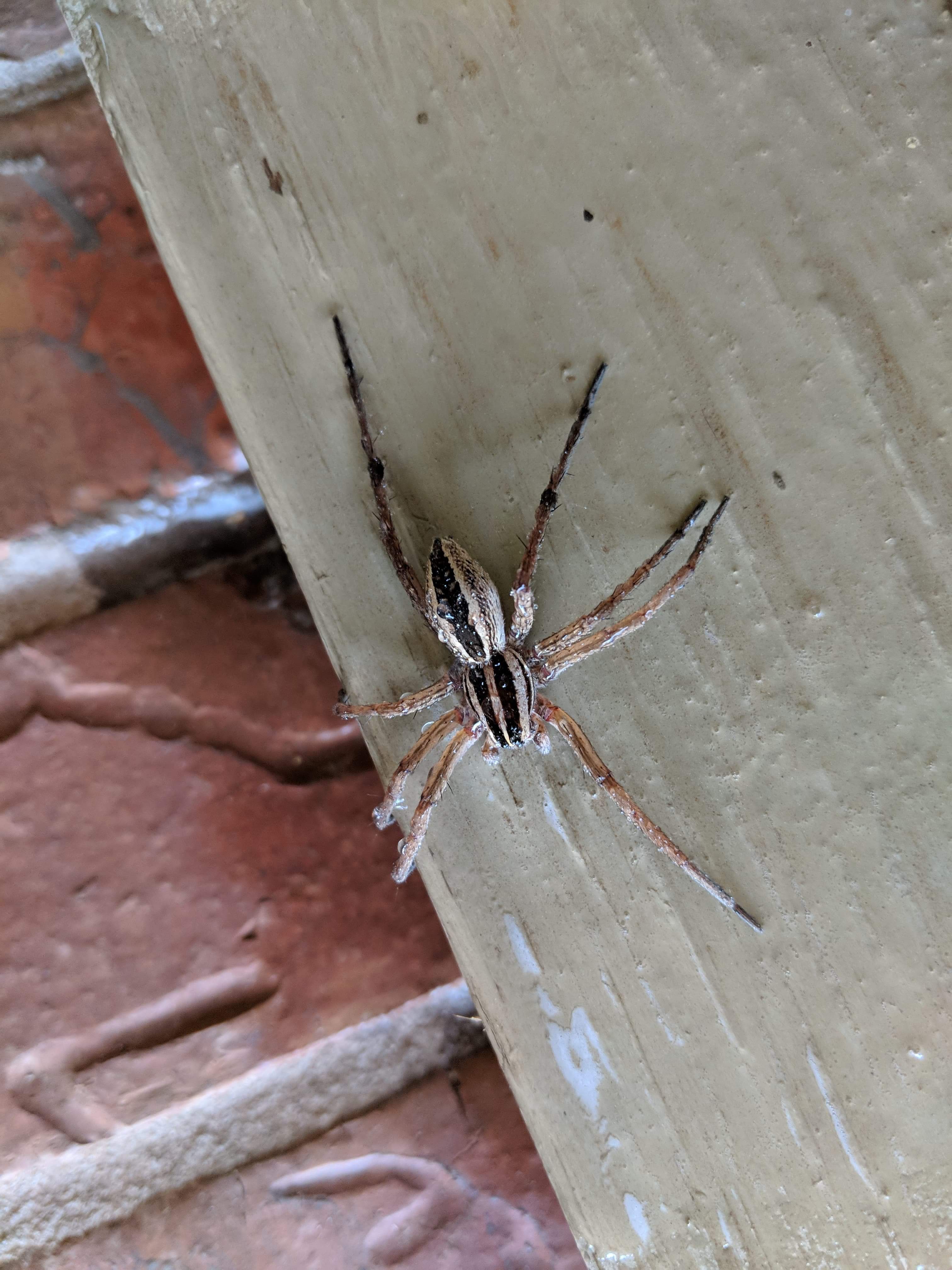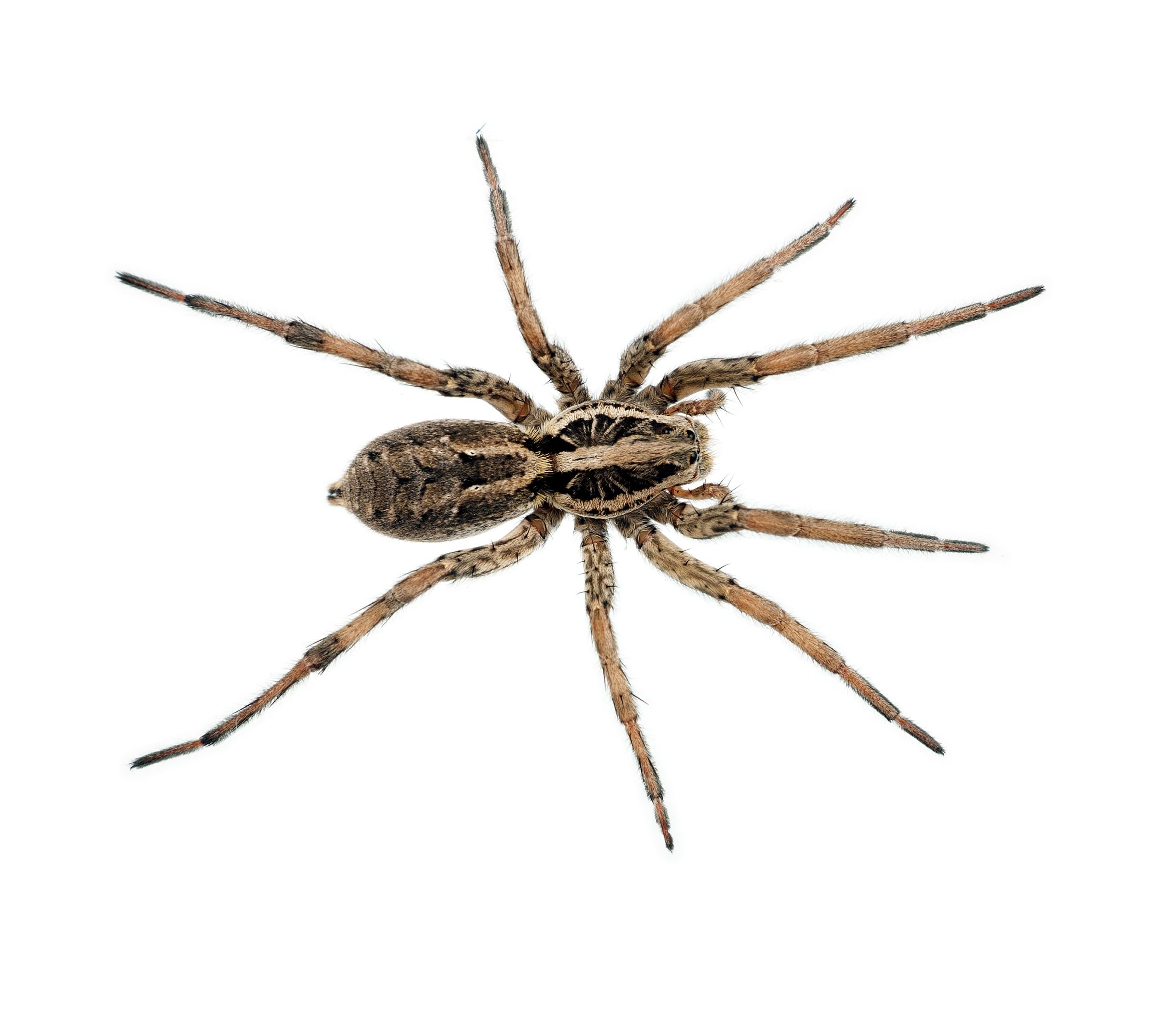
During this time of year it is almost impossible not to encounter a spider while enjoying your favorite outdoor activities. The sight of any of these arachnids are enough to send chills down the spines of numerous people. Arachnophobia, the fear of spiders, is one of the highest ranked phobias in the United States. This is mostly due to Hollywood and evolutionary triggers that helped keep our ancestors alive. Although spiders have and quite possibly will always have a bad reputation amongst us humans for all eternity, not all of these eight legged hair raisers are bad or out to harm you. Before we get into the reasons on how to obtain a spider free home we should bring light to reasons why spiders can be beneficial in our gardens and other places on our properties.
Benefits of spiders

Photo by Jacob Gilleland
Spiders are one of the most effective creatures when it comes to biological pest control. Being a natural predator their niche is to pray upon unfortunate insects that are unlucky enough to wonder or fly into their webs. These arachnids are responsible for clearing away many of the insects we deem pests. From stink bugs, to house flies, to mosquitos few will escape the wrath of the spider. For example, in Maryland and Virginia the tiny predator that would be the most familiar to any homeowner would be the Orb weaver. It is the most common spider that will likely be taking up residence in the corners, damp-dark places, soffits and eaves in and around your home. These spiders are easily identified by their spiral wheel-shaped webs. However even with the benefits of having free biological pest control around your property this doesn’t mean these arachnids have an open invitation to our homes. Depending on species there are few that pose health risks to the public and unsuspecting members of our families that unknowingly stumble into their webs such as black widows. This is why spiders are best kept away from our homes but rather in our gardens. Here is where we will get into methods on reducing spiders around our homes.
1. Sweep down spider webs and remove their food source
Spiders will always spin their webs wherever their food sources are. Lights around the exterior of your home is a hot spot for spider activity. Most insects are attracted to light fixtures whether that is due to insects trying to find a mate or trying to consume other insects. These webs are well constructed to take on most of their pray. Most spiders are nocturnal hunters. Dawn brings the end of their night time hunting to most species of spiders. They then will find a crack or crevice to crawl into for the daytime hours. During this period, spiders will leave their webs, Insects remnants, excrement, and web casings behind for the next night. Sweeping down these webs during the day and turning off lights at night will help remove the spider and the spider’s food source. It will also save you a bit on your electric bill.
2. Seal cracks, crevices, and entry points around your home.
Spiders will always seek a place to hide during the day time. Some species are nomadic hunters, such as the wolf spider, and will gain entry to your home.

Photo by Jacob Gilleland
Whether by accident or on purpose you can stop an arachnid from entering your home by sealing or patching hole or sealing any gaps. Most entry points include but are not limited to:
- Gaps in a door’s weather stripping
- Cracks or punctures in siding
- Gaps around windows
- Doors that do not close properly
- Chimneys without a proper chimney cap
- Gaps in floor boards or holes that lead to crawl space
- Garage doors that have gaps along trim or whether stripping
3. Remove spiders on the interior
The most effective methods to remove spiders from the inside of your home are to use a vacuum to suck the spider up, glue boards, and removing clutter in garages or basements. These control methods will be a more invasive approach to oust the arachnids. The goal in interior spider control is to rarely use any pesticide product whether that be from a professional or an over the counter product you by at your local store. When a spider enters your home it will always seek for two things; a food source and shelter. Most spiders will get most of their water from the prey they consume making it rare for them to go in search of it. When a spider seeks shelter in a home it will typically look for dark places such as clutter within the home, basements, behind furniture, pantries, and cubbies. This will provide protection and a food source for insects who also enter the home looking for the same needs. Removing any of the clutter in these areas will eliminate the sanctuary for both spiders and their food sources. Placing glue boards in dark places in your home will ultimately help you control any spider who gets in searching for a hide-a-way. Closets and basements are a good example of this method. Placing a glue board along the walls and in corners would target most spider travel areas.
4. Trim foliage around you house and store firewood properly
Trimming back overhanging trees, bushes, shrubs, and vines away from your home will ultimately disrupt a way of travel any insect or arachnid has to your home. The harder it is for them to gain entry the better your exclusion attempts will work. Another way to eliminate spider populations is to remove stored firewood or any leaf litter away from the foundation of your home. Storing wood may seem like an innocent task, but it provides insects with a habit to keep warm and stay protected from predators and the elements. Spiders will go in search of their pray and take up shelter in the firewood as well. Removing firewood and any stored item around your foundation will eliminate their food sources, habitat, and breeding grounds.
5. Perimeter treatment
Another method of spider control is seeking a perimeter treatment from a Pest management company. This service will be preformed by a technician who will apply a concentrated liquid treatment around your foundation, windows, soffits, and eaves. This is a highly effective way that will stop spiders in their tracks. Coupled with this, the perimeter service typically focuses on removing webs and inspecting for any access points that spiders or any other pest would use to gain access. If you have tried all of the methods above and still have no luck then this would be your best way to combat your spiders. Every spider, unless it hatched on the inside, has to enter from the outside in at some entryway.
NEED HELP?
If you live in Southern Maryland, or Northern Virginia
FIND YOUR SOLUTION HERE
People, Pet & Pollinator Safe! Pest control for people who care.
